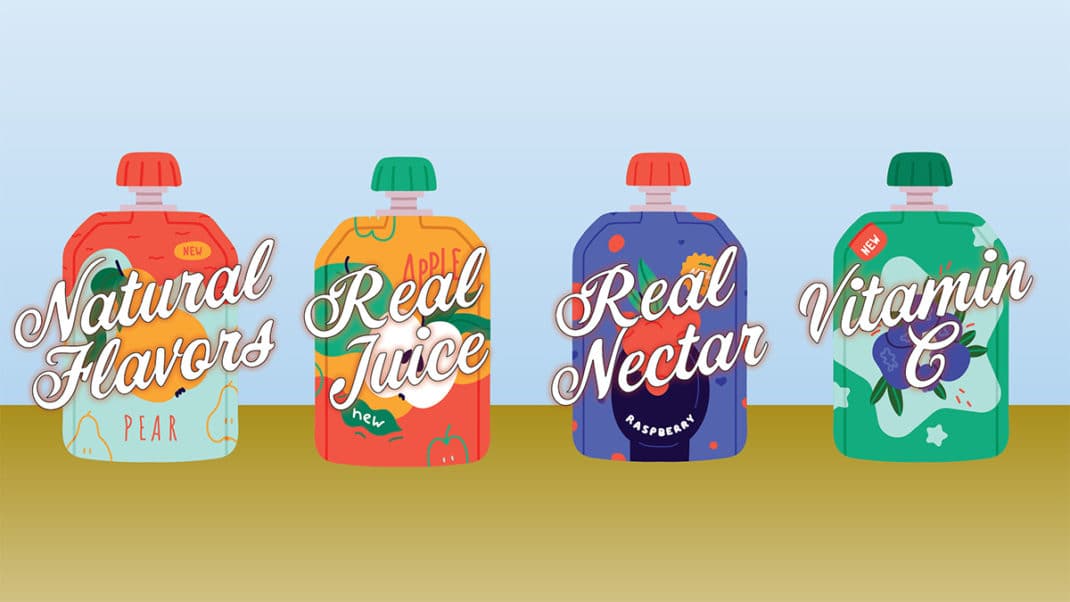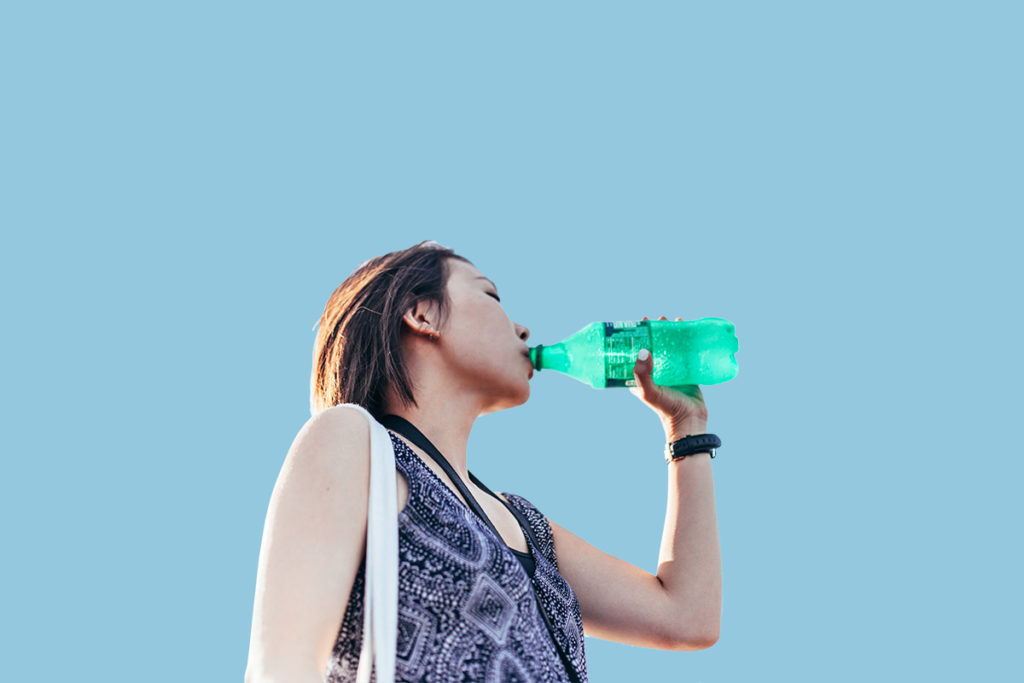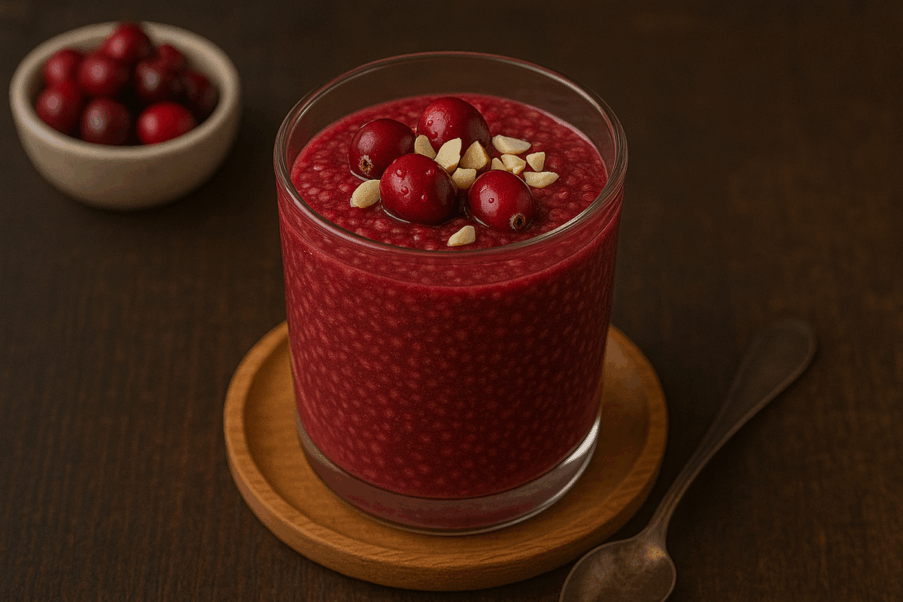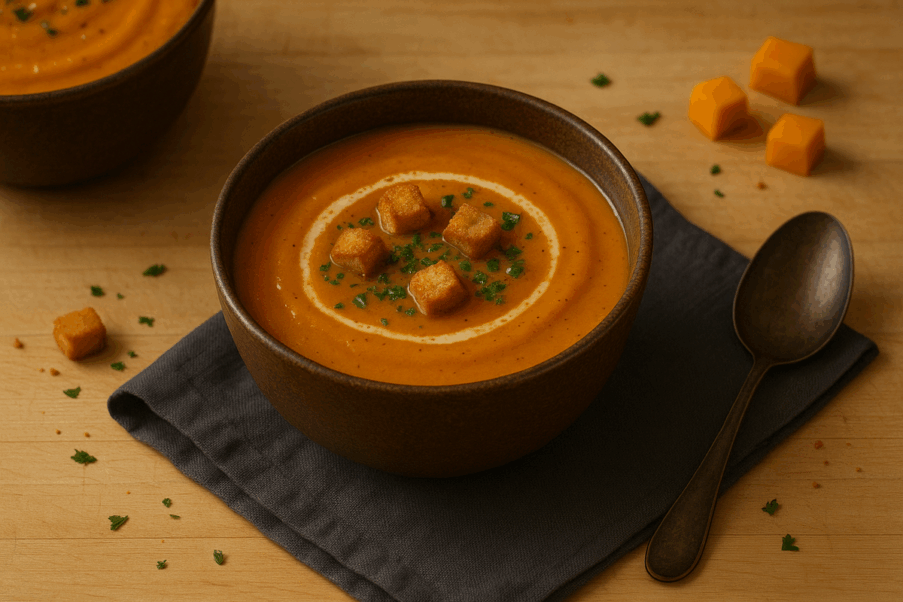Misleading Label Claims for Fruit Drinks
Study reveals some unhealthy tricks of the trade.

Want to make a product to appear healthier than it might be and make purchasing it more tempting? Manufacturers of fruit drinks know the trick of the trade—and that’s to slap on some front-of-package lingo.
A study published in the Journal of the American Academy of Nutrition and Dietetics analyzed 2,059 fruit drinks purchased by households with children ages 0–5 and found that nearly all (97%) of the drinks had at least one nutrition-related front of package claim. Most common, and yet of little relevance to the nutritional value of the product was the “natural flavors” claim, followed by claims about the presence of real juice or nectar. Declarations about vitamin C, sugar and calories were also common.
What’s telling about the results is that fruit drinks with overt natural claims—as well as those regarding vitamin C, juice or nectar, and fruit or fruit flavor—were higher in calories and sugar compared with products without these labels. Drink products that made calorie and sugar claims did tend to be lower in these in relation to products without.
Since fruit drinks, which may or may not contain any actual fruit, are commonly consumed sugar-sweetened beverages, especially in households with younger children, the label claims that can create what study authors call a health “halo effect.” And they’re problematic as they may encourage less nutritious purchasing decisions.
See also: Sugary Drinks and Warning Labels
Matthew Kadey, MS, RD
Matthew Kadey, MS, RD, is a James Beard Award–winning food journalist, dietitian and author of the cookbook Rocket Fuel: Power-Packed Food for Sport + Adventure (VeloPress 2016). He has written for dozens of magazines, including Runner’s World, Men’s Health, Shape, Men’s Fitness and Muscle and Fitness.




